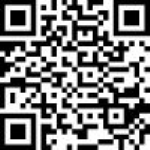What, How, and Why? A Study on Senior High School Teachers’ Selection of Textbooks
Author: Chin-Ju Mao(Department of Education,National Taiwan Normal University)
Vol.&No.:Vol. 58, No. 2
Date:June 2013
Pages:123-147
DOI:10.3966/2073753X2013065802005
Abstract:
In this study, I first uncover the procedures adopted in selecting the history textbooks used in high schools and the teachers’ reasons for choosing the textbooks. Second, I analyze the implicit meanings of such a phenomenon. In this study, 218 high school history teachers were interviewed by phone; four open-ended questions were asked: What editions of the history textbooks were chosen in your school, and by whom? Through what type of process, and why? The collected data are analyzed by employing the grounded theory.
This study discovered that textbook selection considerations can be coded into six categories: (1) the structure and content of the textbooks; (2) the student level and their manner of learning; (3) the teachers’ habits and enough time for delivering the texts; (4) the services offered by the publishers and related materials for teaching and learning; (5) curriculum guidelines; and (6) satisfying exam requirements. The first three categories can be considered “core factors,” the fourth category is a “related factor,” and the last two categories are “structural factors.” Among them, the structural factors permeated the daily practices of teaching. Whether using traditional NICT-style textbooks as criteria for comparing and selecting textbooks or for emphasizing the importance of covering critical points in textbooks, they reflect the impact of hidden structural factors on the teachers’ choice of textbooks. This situation also indicates the dilemmas that teachers face in their teaching practice.
Keywords:high school history teachers, textbooks, open textbook policy, textbook selection
 《Full Text》
《Full Text》
